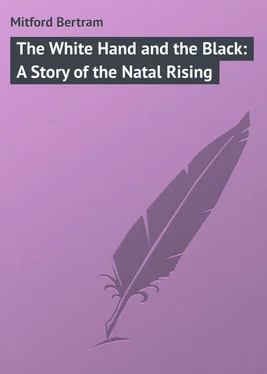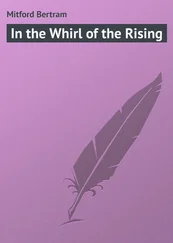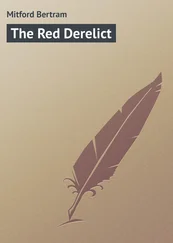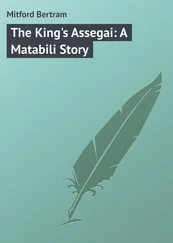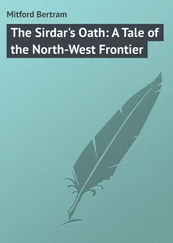Bertram Mitford - The White Hand and the Black - A Story of the Natal Rising
Здесь есть возможность читать онлайн «Bertram Mitford - The White Hand and the Black - A Story of the Natal Rising» — ознакомительный отрывок электронной книги совершенно бесплатно, а после прочтения отрывка купить полную версию. В некоторых случаях можно слушать аудио, скачать через торрент в формате fb2 и присутствует краткое содержание. Жанр: foreign_prose, на английском языке. Описание произведения, (предисловие) а так же отзывы посетителей доступны на портале библиотеки ЛибКат.
- Название:The White Hand and the Black: A Story of the Natal Rising
- Автор:
- Жанр:
- Год:неизвестен
- ISBN:нет данных
- Рейтинг книги:4 / 5. Голосов: 1
-
Избранное:Добавить в избранное
- Отзывы:
-
Ваша оценка:
- 80
- 1
- 2
- 3
- 4
- 5
The White Hand and the Black: A Story of the Natal Rising: краткое содержание, описание и аннотация
Предлагаем к чтению аннотацию, описание, краткое содержание или предисловие (зависит от того, что написал сам автор книги «The White Hand and the Black: A Story of the Natal Rising»). Если вы не нашли необходимую информацию о книге — напишите в комментариях, мы постараемся отыскать её.
The White Hand and the Black: A Story of the Natal Rising — читать онлайн ознакомительный отрывок
Ниже представлен текст книги, разбитый по страницам. Система сохранения места последней прочитанной страницы, позволяет с удобством читать онлайн бесплатно книгу «The White Hand and the Black: A Story of the Natal Rising», без необходимости каждый раз заново искать на чём Вы остановились. Поставьте закладку, и сможете в любой момент перейти на страницу, на которой закончили чтение.
Интервал:
Закладка:
The preacher was working himself up to a pitch of eloquence that impressed his audience – and a native orator can be very eloquent indeed. Murmurs of applause greeted his periods, and now as he paused to wipe his clammy forehead with the white handkerchief of civilisation, these grew quite tumultuous. Only Manamandhla the Zulu kept saturnine silence. He knew who, in this wonderful brotherhood of equality, was going to have the upper hand, and any idea to the contrary moved him to mirth, as too absurd to be worthy of a moment’s consideration.
But the ways of Nkulunkulu – went on the preacher unctuously – though sometimes slow were always sure, and now He had revealed His will to some who had come across great distances of sea to bring it to them; not white men but black like themselves. These had come hither with a message of deliverance to all the dark races, and he himself was a humble mouthpiece of such. But there were many such mouthpieces. They were everywhere, and were being heard gladly. Who could refuse to hear them? The people of this land were being oppressed and trampled upon; and so it was wherever the white man set down his foot. Let them look at the past. Where were the nations that dwelt proudly in their own lands? Gone, utterly gone, or slaves to the white man; who planted his own laws upon them and punished them heavily if they did not obey.
The crafty rascal however found it convenient to ignore the fact that the worst that the white man had ever done to them was a joke when compared with the treatment formerly meted out to the black man by his brother black. Then he proceeded to quote from the Scriptures.
There was a fair sprinkling of amakolwa among his audience, i.e. those who had been converted to Christianity – of a sort – and these now listened with renewed zest. They would appreciate his arguments, and afterwards make them plain to their fellow countrymen not so privileged, in their discussions from kraal to kraal.
He deftly quoted from the history of the Israelites, and their deliverance from the Egyptian bondage, making out that these were in similar bondage, that the promises made to Israel were given to them too. He went further. He even assured them that they were offshoots of Israel, cleverly citing numbers of their national and tribal customs, some obsolete but many still in force, which exactly corresponded with the precepts of the Mosaic law. The great book of the white men which revealed the will of Nkulunkulu, he declared, was wrongly so called, in that it was not revealed to white men at all, but to dark men. The whites had stolen it, as they stole everything.
A deep bass hum of applause broke from his audience. It was a strange scene. The vast assemblage held spellbound, the preacher, arrayed as one who preaches the gospel of peace, instead, swaying this multitude of dark savages with the gospel of revolt and war, and all the ruthless atrocity of horror which such represents. All spellbound there in the clear light of the broad moon, flooding down upon ridge and valley, and loom of mountain misty against the stars.
For upwards of another hour the preacher went on, the entranced audience drinking in every word. They could have listened to him all night, but he had too much natural astuteness to risk repeating himself.
“Brothers,” he concluded, “I have shown you your bondage. You are increasing, as the chosen people of old, and the more you are increasing the more you have to pay in taxes to the white man; the more you have to submit to his slave-imposing laws. You may say – as many have said – ‘What can we do? The white man has cannon and we have the assegai, what chance then have we?’ But even the white man’s cannon is not able to go everywhere, and even if it could, there is a more powerful weapon still. There are those who rule the whites who will lift up a voice in your behalf. Who will say – ‘Stop. This has gone far enough. We will not have our black brethren butchered solely because they are black.’ I know what I say, for I have seen and talked with such. ‘Stop,’ they will say. ‘Bloodshed must cease.’ And the nation will approve because war costs money, and white people are no fonder of having to pay than are black people. Then when their fighting men are withdrawn – then we will rise in our might, in one overwhelming black wave, and sweep all these whites back into the sea, whence they came. Be patient. You will have ‘the word’ in good time and that time soon. I have shown you your bondage, now I am showing you your way out, for it is the will of Nkulunkulu. I have done.”
A deep murmur arose. The vast multitude, moved to the core, took some time to realise that the proceedings were over. Then it broke up. Many remained on the ground, squatting in groups, eagerly discussing the points put forward; others broke up, and in twos or threes, or singly, departed for their homes. Among the latter was Teliso the native detective.
Not all, however, so went. There was a disposition among some of the headmen to probe further the speaker’s statements. Who were these rulers among the Amangisi (English) who would call upon their countrymen to stop the war? enquired the old man who had shown a disposition to heckle the preacher in Babatyana’s hut. He was old, but he had never heard of the chiefs of any people who would seek to turn that people back in the moment of their victory. Whau ! this was wonderful news, but – who were they?
“M-m! Who are they?” hummed the others. But the Rev. Job was not nonplussed.
“They are among the head indunas of the nation,” he replied. “The ways of the white man are not as our ways, else that which I have been telling you would seem so much childish folly. Brothers, you will remember how the indunas of the Amangisi treated the Amabuna (Boers) when they had conquered them many years ago. They gave them back all their lands, and went away. They lost hundreds and hundreds of fighting men at the hands of the Amabuna, yet they gave them back all their lands, nor did they even exact any tribute. And what happened yesterday? After three years of fighting, wherein thousands and thousands of Amangisi were slain, did they not pay the Amabuna largely to make peace? Are they not preparing even now to give them back their lands once more? Whau ! And even so will they deal with us.”
“And the King?” put in Babatyana with his head on one side. “The King of the Amangisi? What will he do with such indunas as they?”
“He will do as his indunas advise, brother, for such is the way with the Amangisi.”
“A king who is ruled by his indunas is as a dog that is wagged by its tail. U’ Tshaka!” returned Baba tyana vehemently, swearing by the name of the great Zulu. And the others murmured assent.
“Yet it is so, amadoda . I, who have seen, I, who know, tell you so.”
And the confidence with which the speaker declared this, the certainty in his whole manner and look, staggered the doubters. In such wise was the venom drop injected by these snakes in the grass fostered and educated all unknowingly by the agencies of philanthropy and civilisation.
“Great news have we heard this night, brothers. But, even though we drive the Amangisi out, have we not to reckon with the Amabuna? They are terrible fighters. Not all the tribes in the world could drive them out, impela !”
The speaker was Teliso, who had joined a group which was discussing what they had heard.
“Not all the tribes in the world!” repeated one, derisively. “Hear that!”
“Even that Lion, Dingane, had to flee before them,” urged the detective.
“Ha! Was there not another Lion of Zulu that roared louder, and divided the nation? But for this they had been driven out themselves.”
“M-m!” hummed another. “That is as the preacher says. Combine – do not divide.”
Читать дальшеИнтервал:
Закладка:
Похожие книги на «The White Hand and the Black: A Story of the Natal Rising»
Представляем Вашему вниманию похожие книги на «The White Hand and the Black: A Story of the Natal Rising» списком для выбора. Мы отобрали схожую по названию и смыслу литературу в надежде предоставить читателям больше вариантов отыскать новые, интересные, ещё непрочитанные произведения.
Обсуждение, отзывы о книге «The White Hand and the Black: A Story of the Natal Rising» и просто собственные мнения читателей. Оставьте ваши комментарии, напишите, что Вы думаете о произведении, его смысле или главных героях. Укажите что конкретно понравилось, а что нет, и почему Вы так считаете.
